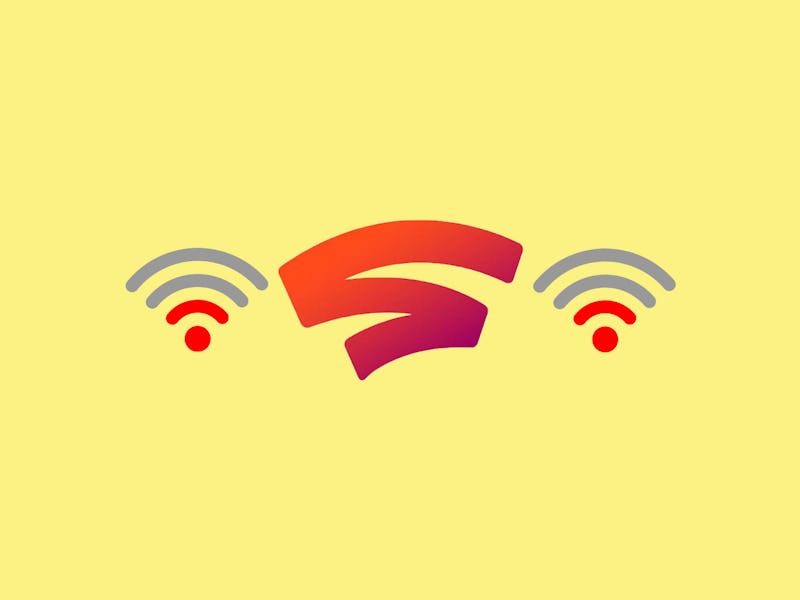Google Stadia: A Crucial Presentation Omission Leaves Cause for Concern
Google neglected to address the key anxiety about Stadia.

Google pulled the curtains back on its cloud gaming service Stadia on Thursday. The company’s first Stadia Connect announcement shed light on the service’s pricing, game library, and set a tentative release date for sometime in November.
Stadia has managed to pull off a few coups, like recruiting most of the big game makers including Rockstar Games and EA. But while Stadia has a lot to be excited about, the taped presentation also welcomed a major elephant into the room: Has Google improved upon the laggy product that it demoed last March?
It’s the million dollar question. Stadia’s cloud gaming platform is supposed to eventually run entirely on Google’s global network of data centers, which will run the games and then stream the output to Stadia’s users over the internet. The system has the potential to eliminate the need to buy expensive consoles or PC hardware. But without access to stable broadband speeds, even single-player games will crawl.
Google told users the kind of internet speeds they’d need to smoothly play on Stadia Tuesday, but the presentation didn’t include a gameplay demo. Instead, the company tried to tantalize gamers with what is objectively a stacked roster of titles and surprisingly affordable pricing. But it neglected to put forth hard evidence that gamers will be able to reliably use Stadia at home.
The internet speed requirements to run Stadia.
Google has only ever hosted one live demo of Stadia at its announcement at GDC. And even in this highly scrutinized setting, the demo exhibited notable lag issues, and people who tried an early version of the platform noticed similar problems. Stadia Connect was Google’s chance to address these concerns with a live demo, hopefully one that would demonstrate Stadia’s capabilities on home wifi. But instead, it opted mostly for game trailers, though Stadia did share the finalized list of specs.
Latency did not go entirely unaddressed. Google says that the minimum required download speed to run Stadia games is 10 Mbps for 720p and 35 Mbps for 4K at 60 frames per second, 10 Mbps faster than Google claimed at its GDC announcement in March. The higher requirements suggested that Google is working on the lag problems, but it’s worth noting that those bandwidth speeds will be out of reach for a majority of homes in the United States.
Google didn't host a live demo of Stadia during its June 6 announcement, which left a lot of unanswered questions about potential latency issues.
Cloud service provider Akamai Technologies found that only a fifth of the households in the U.S. get 25 Mbps download speeds in a 2017 report. These findings were echoed by a 2018 FCC report that found 24 million American households don’t have access to download speeds faster than 25 Mbps.
25 Mbps might be enough to run Stadia at lower resolutions, but that isn’t going to cut it for hardcore gamers. Even then, any fluctuation in internet speed could result in a game stuttering or lower its resolution mid-gameplay. Asher Kagan, CEO of cloud gaming service Shadow, told Inverse that when it launched a Shadow beta in March 2018, it saw major swings in internet speeds depending on the time of the day.
The idea of playing console games on any screen is enticing. But is it possible with the current state of broadband speeds?
“We saw that some of the cable infrastructure was working perfect during the day but during the weekend it was catastrophic,” said Kagan. “With cable you’re usually sharing it with your neighborhood and when everyone is using the internet the consistency goes down drastically.”
Stadia chief Phil Harrison said that Stadia’s goal is to “make gaming more accessible for everyone.” Not having to shell out hundreds for a console would be ideal for all gamers. But spending $129.99 on Stadia’s Founders Package only to realize your bandwidth isn’t up to snuff, or even worse, that games still lag despite meeting the requirements would be a huge step backwards for the industry.
Google missed a big opportunity to bolster consumer trust in just how reliable Stadia will be on their home wifi network. Hopefully between now and November, the lag issues on display in March will have been resolved.